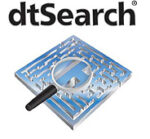
Slim.AI, the startup dedicated to optimizing and securing cloud-native applications, announced that it has raised $31 million in Series A funding. The round was co-led by Insight Partners as well as StepStone Group, with participation from Boldstart Ventures, Decibel Partners, FXP, Knollwood, and TechAviv Founder Partners.
This influx of financing will fuel Slim.AI’s goal to help developers ship secure, production-ready containers in an automated, repeatable, and transparent manner.
“Developers and technology leaders alike are beginning to understand the need to optimize images before they go to production, minimizing the attack surface of their applications. The best vulnerability is the one you never ship,” said John Amaral, CEO and co-founder of Slim.AI.
Nylas announces Nylas Streams
Nylas, provider of communications APIs for business productivity automation, today released Nylas Streams. This brings engineers and technical teams a new way to unlock the value of their communications data quickly and with little to no code. Nylas Streams allows businesses to access, transform, and analyze communications data in order to increase revenue, prioritize business decisions, and maximize user efficiency.
This release brings users several new features, including
- Remove organizational bottlenecks by tapping into real-time datasets to guide strategic business decisions
- Gain visibility into their users’ communications datasets, surface meaningful analytics, and load this data into the warehouse of their choice
- Easily structure and integrate your data into leading cloud data warehousing and processing solutions
Aqnostiq launches Covalent
Agnostiq, the quantum computing SaaS startup, today unveiled Covalent, an open-source workflow orchestration platform designed for quantum computing and HPC technologies. The goal of this release is to make quantum and high performance computing resources more accessible.
Covalent works to solve critical challenges associated with advanced computing technologies. These challenges include breaking down workflows into modular Python components, creating a single entry point for Quantum Processors; CPUs; GPUs; and quantum inspired hardware, and more.
“We have an aggressive roadmap to make Covalent a standard development tool for computationally heavy tasks that require advanced computing infrastructure such as quantum and HPC,” said Oktay Goktas, CEO of Agnostiq.



